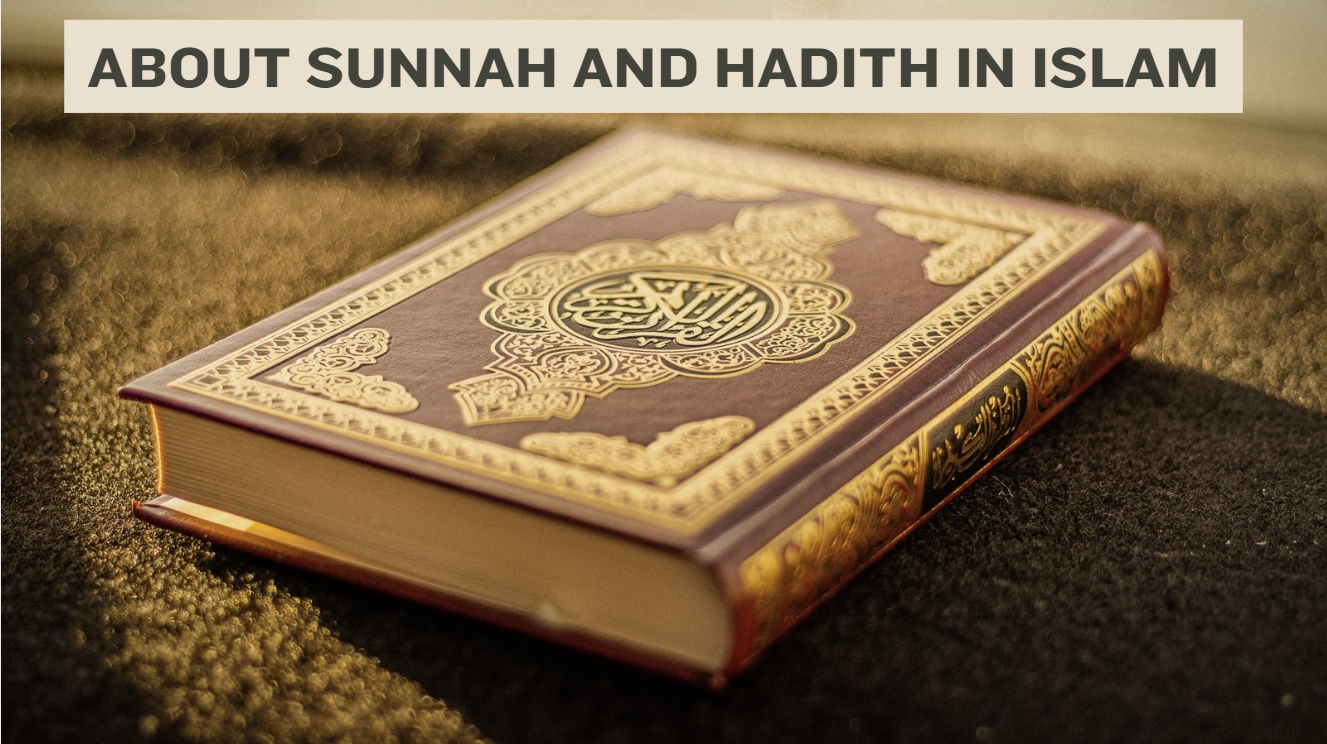About Sunnah and Hadith in Islam
Sunnah and Hadith are fundamental concepts in Islam which guide the lives of Muslims by providing a framework for behavior and practice. Sunnah refers to the actions and teachings of the Prophet Muhammad. Hadith consists of the recorded sayings and actions of the Prophet.
Definitions
Sunnah
The term “Sunnah” is derived from the Arabic word “سنة” (sunnah), meaning “way” or “path.” It encompasses the normative practices established by the Prophet Muhammad during his life.
Hadith
“Hadith” comes from the Arabic word “حديث” (hadith), which translates to “report” or “communication.” It refers to the documented words and deeds of the Prophet Muhammad .
Importance in Islam
Source of Law
Sunnah and Hadith serve as the second source of Islamic law (Sharia) after the Quran. They are essential for interpreting and applying Islamic principles.
Guidance for Muslims
These teachings provide context for Quranic verses. They assist Muslims in understanding how to implement Islamic values in daily life.
Types of Sunnah
Sunnah is categorised into three main types:
- Sunnah Qawliyyah: The sayings of the Prophet Muhammad .
- Sunnah Filiyyah: The actions performed by the Prophet Muhammad .
- Sunnah Taqririyyah: The approvals given by the Prophet Muhammad regarding the actions of others.
Classification of Hadith
Hadith can be classified based on their authenticity:
- Sahih (Authentic): Well-documented with a reliable chain of narrators.
- Hasan (Good): Acceptable but may have minor issues.
- Da’if (Weak): Significant issues in the chain or content.
- Mutawatir: Reported by many narrators, making it highly reliable.
- Ahad: Reported by a few narrators, less certain than mutawatir.
Major Collections of Hadith
Several key collections of Hadith are recognised for their authenticity:
- Sahih al-Bukhari: Compiled by Imam Muhammad ibn Ismail al-Bukhari, deemed the most authentic.
- Sahih Muslim: Compiled by Imam Muslim ibn al-Hajjaj, regarded as the second most authentic.
- Sunan Abu Dawood: Compiled by Abu Dawood, focusing on legal rulings.
- Jami` at-Tirmidhi: Compiled by Imam Tirmidhi, includes various hadiths and classifications.
- Sunan an-Nasa’i: Compiled by Imam an-Nasa’i, known for its strict authenticity criteria.
- Sunan Ibn Majah: Compiled by Ibn Majah, includes unique hadiths not found in other collections.
Methodology of Hadith Compilation
The compilation of Hadith follows a rigorous methodology:
Isnad (Chain of Narration)
Isnad refers to the list of narrators who transmitted the hadith. It is crucial for determining authenticity.
Matn (Text)
Matn refers to the actual content of the hadith. Scholars analyse it for consistency with Islamic teachings.
Critique of Narrators
Scholars assess the reliability and integrity of each narrator in the chain. This scrutiny is vital for establishing authenticity.
Role of Sunnah and Hadith in Islamic Jurisprudence
Fiqh (Islamic Jurisprudence)
Sunnah and Hadith are essential for deriving legal rulings in Islamic law. They provide context and interpretation for various legal issues.
Ijtihad (Independent Reasoning)
Scholars utilise Sunnah and Hadith in ijtihad. This process allows for interpretation and adaptation of Islamic law to contemporary issues.
Contemporary Relevance
Guidance in Daily Life
Sunnah and Hadith offer practical examples for Muslims in various life aspects. They influence ethics, social conduct, and worship.
Interfaith Dialogue
About Sunnah and Hadith can facilitate discussions about Islamic beliefs with non-Muslims. It promotes mutual respect and understanding.
Challenges and Controversies
Authenticity Issues
The existence of weak hadiths poses challenges. Differing opinions on the authenticity of certain narrations can lead to confusion.
Interpretation Variability
Different schools of thought within Islam may interpret Sunnah and Hadith differently. This leads to diverse practices among Muslims.


